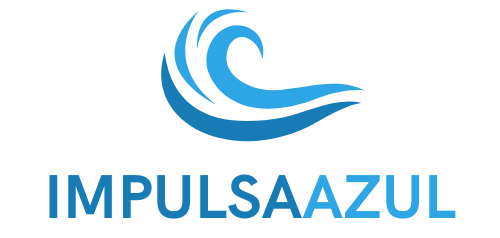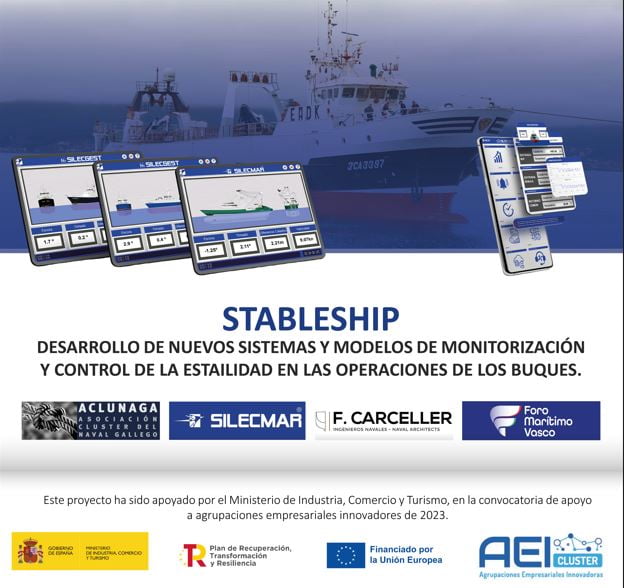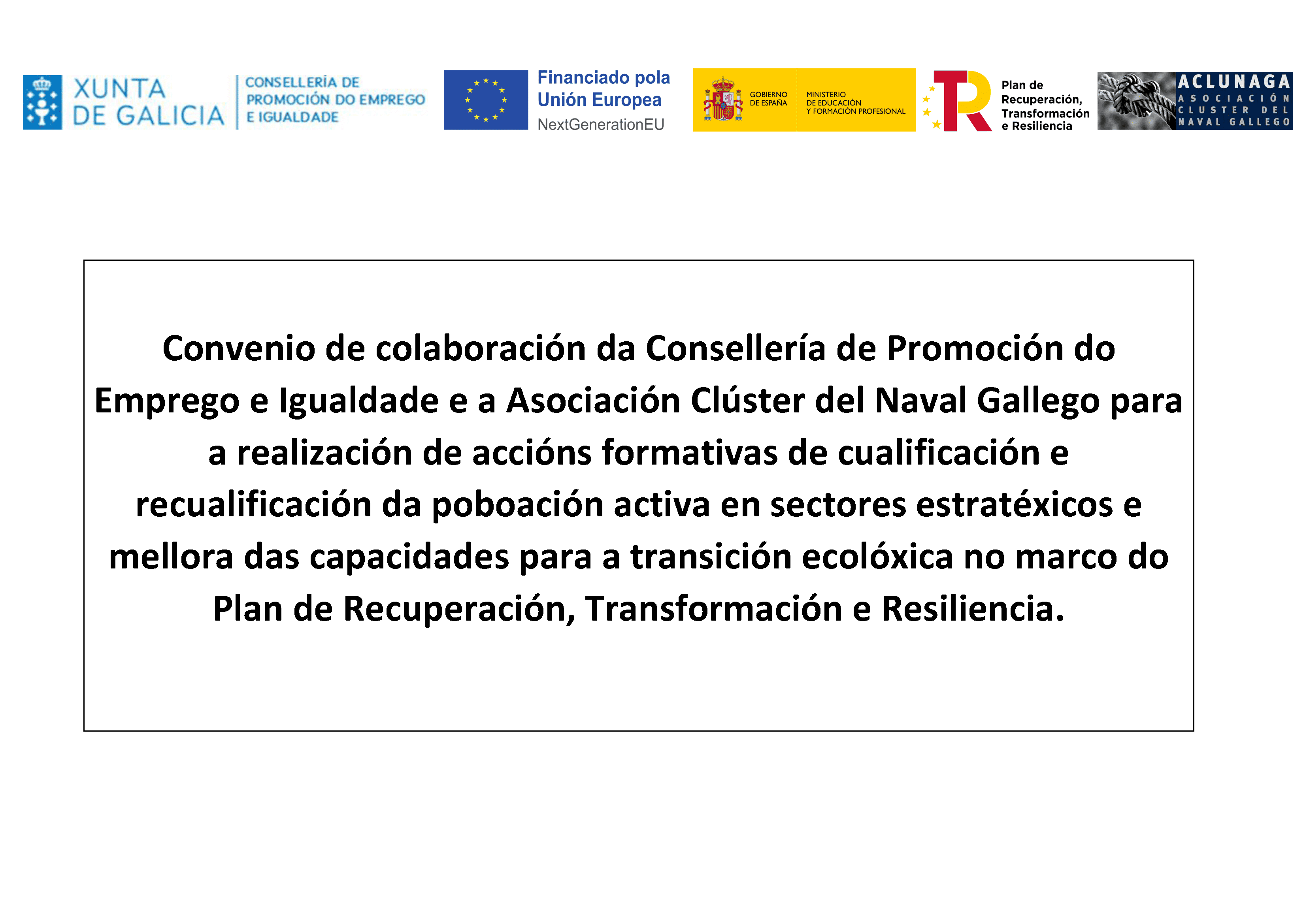Projects with European funding
IMPULSA AZUL Desarrollo de capacidades para impulsar una economía azul, sostenible y resiliente
Fecha de ejecución: 01/2025 a 01/2027
Presupuesto: 357.752,85 €
El
This entity was given economic aids in order to execute actions for exterior promotion of Galician companies.
The Twin NavAux project aims to establish the technological conditions and training required to facilitate the widespread implementation of digital twin product models in the naval auxiliary sector within the Galicia - Northern Portugal cooperation area.
The VLP4.0 project - Visual Layout Platform 4.0 - aims to develop a comprehensive digital solution to support the daily activity management of people working on the shop floor. The VLP 4.0 Platform is conceived as a solution for the visual and agile management of the plant, with the objective of optimising resource use, increasing user autonomy, and ensuring safety in operations.
The AUTOPAPERLESS II project - Digitisation of documentation associated with production processes - aims to advance the evolution, implementation, and validation of the platform for the digitisation of quality management, whose initial version was developed in the previous phase; and at the same time, to equip it with new functionalities to complement it, in order to increase its accessibility and traceability with the aim of achieving zero-paper factories.
The Smart Crane II project – Research and development of an intelligent and predictive system for securing the movements of aerial loads using overhead cranes in outdoor industrial spaces – involves research into the applied use and technological development of artificial vision systems capable of providing intelligence and predictive capabilities to overhead cranes used in open industrial environments. The aim is to prevent human and material accidents.
The STABLESHIP project – Development of new systems and models for monitoring and controlling ship stability during operations – aims at the experimental development of a prototype to monitor, control, and visualise, through specially designed software, a ship's operation or manoeuvre in which its stability is controlled. This includes mathematical factors of the ship such as its draft, trim, and heel, the design and geometry of its hull, and parameters (stresses, loads, movements) that influence it during a specific manoeuvre.
The project Navegando o futuro – Fostering Technological Vocations and Innovation in the Naval Sector – aims to carry out high-impact actions that consolidate the ecological transition of the naval industry and the training in advanced technologies.
Educational actions collaboration agreement driven by ACLUNAGA in conjuncture with the Ministry of Employment and Equality.
The main objective of SICCMA is to contribute to the digital transformation of SMEs, particularly those in the naval sector, through the experimental development by the consortium of an innovative solution for advanced communication and control services, enabling the intelligent control of simple equipment.








